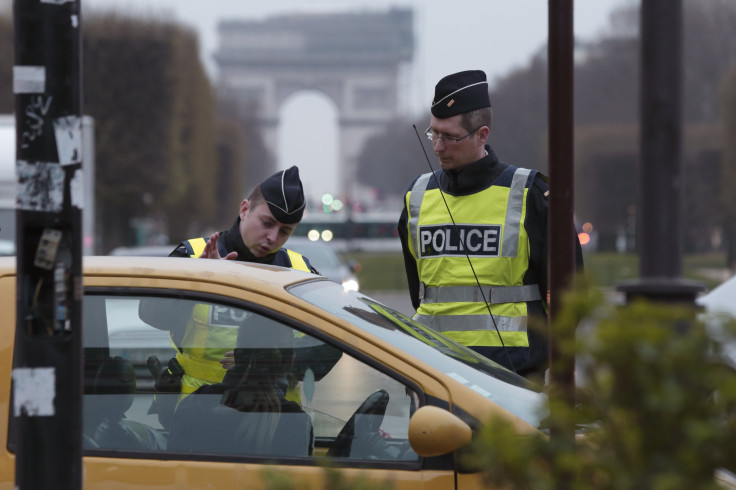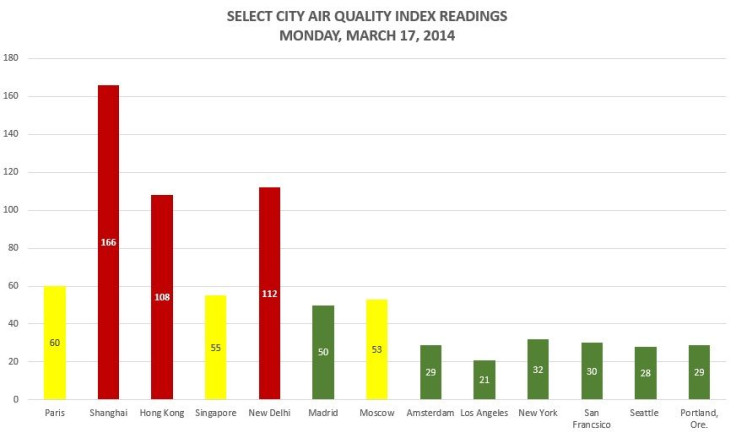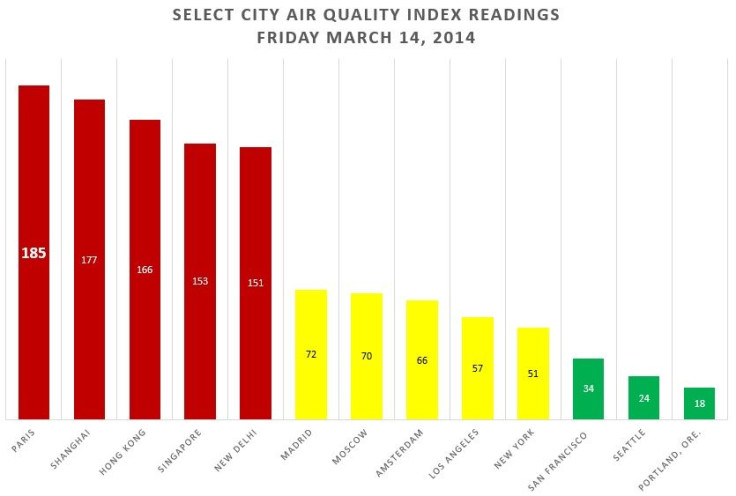Paris Air Quality Index Improves Significantly Over Weekend As City Imposes Driving Restrictions: Here’s Monday’s Paris AQI Reading Compared To Other Cities

After several days of pollution levels typical of giant, fast-growing Chinese cities, Paris city officials began the week with car driving restrictions unseen for 17 years in Europe but part of day-to-day life in Mexico City and Beijing.
On Monday, only private passenger cars and motorcycles with license plates ending with an odd number were allowed to circulate after the city offered free public transportation through the weekend. If the car ban continues on Tuesday, it will be car owners with even-numbered plates who will have their turn on the roads. Electric-car owners and cars carrying three or more passengers are exempt.
Officials responded after the Paris metro area saw pollution exceed safe levels for five consecutive days last week thanks to a perfect-storm combination of low precipitation and wind speeds and mild daytime temperatures coupled with cool nights. These conditions keep carbon monoxide, nitrogen oxide, sulfur dioxide and lung-irritating, carcinogenic micro-particles low to the ground rather than dissipated into the atmosphere.

Check out Monday’s Air Quality Index (AQI) readings for Paris compared to a dozen other cities. Below that is the same comparison from Friday. Mondays typically have the lowest pollution readings because of reduced industrial and vehicular activity over the weekend, and these two charts show just how much the weekend and free public transport helped get Paris’ air back down to levels typical of urban areas. Also notice how Shanghai, Hong Kong and New Delhi saw their levels fall (but still remained in the range considered unhealthy).

Mexico City was the first to impose a permanent car-circulation program, in 1989. The program, called “Hoy No Circula” uses the odd-even number policy coupled with color-coded license plates to limit passenger car use. Between that and increased factory emission inspections, the city has managed to reel in pollution levels significantly over the past 25 years.
While pollution routinely hits unhealthy levels in the Mexican capital and its surrounding urban sprawl, the days of pollution levels so high that schools and government buildings have to close are essentially gone, proving that public policy can mitigate pollution significantly.
© Copyright IBTimes 2024. All rights reserved.




















